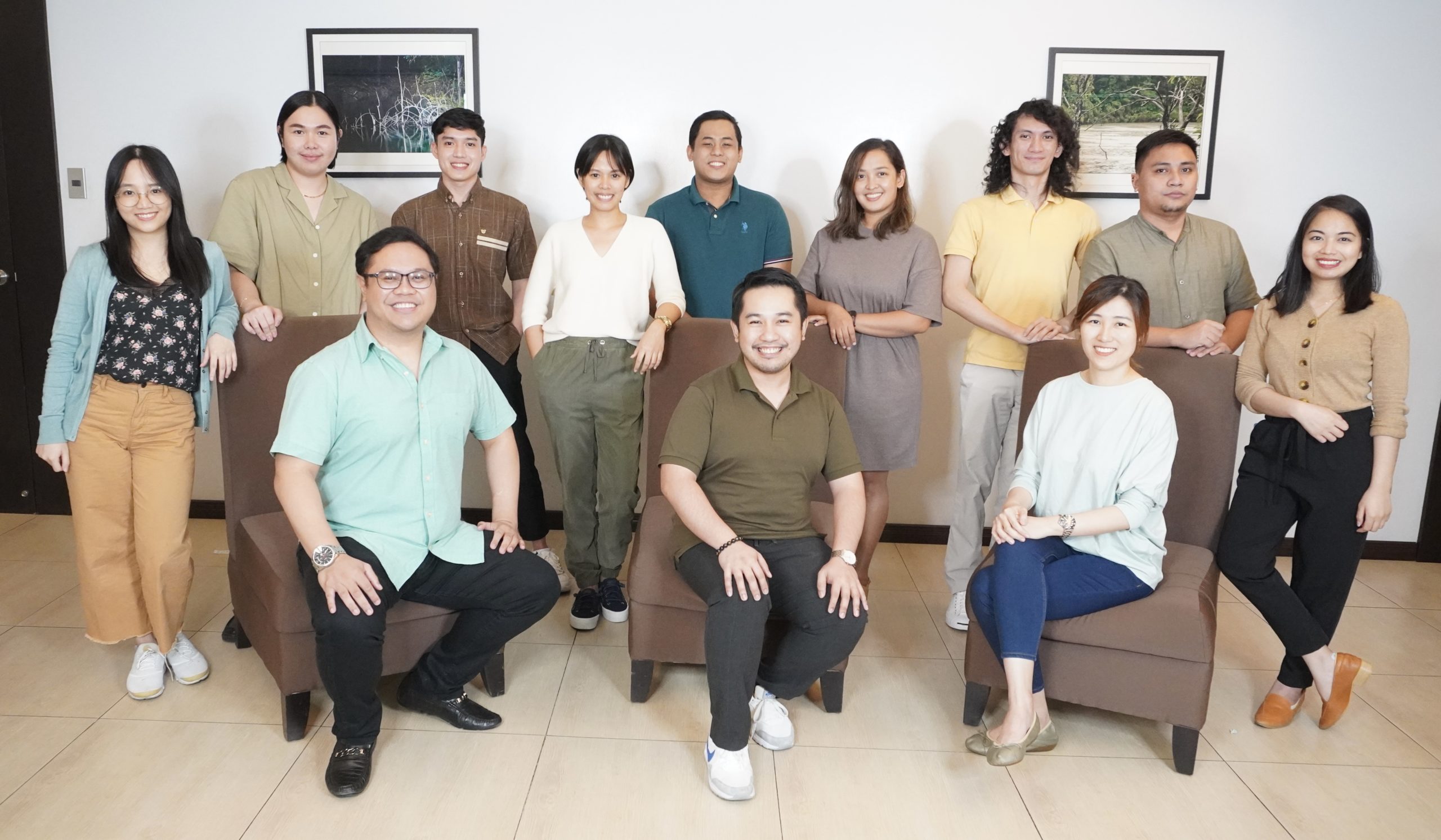News: SLMCCM’s Planetary and Global Health Program Receives Inaugural Innovation Award in Washington DC
| April 25, 2023

Dr. Renzo Guinto, Inaugural Director of the St. Luke’s Planetary and Global Health Program, receives the inaugural CUGH-Velji Planetary Health Innovation Award in Washington, DC. With him are Dr. Anvar Velji; Dr. Dianne Cunanan, SLMCCM-WQHM alumna, and PGHP research associate; and Dr. Keith Martin, CUGH’s Executive Director.
The Planetary and Global Health Program (PGHP) of the St. Luke’s Medical Center College of Medicine-William H. Quasha Memorial (SLMCCM-WHQM) was chosen by the Consortium of Universities for Global Health (CUGH) as the inaugural recipient of the CUGH-Velji Planetary Health Innovation Award during its 14th Annual Conference held on April 14-16, 2023 in Washington, DC, USA.
The CUGH is a rapidly growing US-based organization of over 170 academic institutions and organizations worldwide engaged in addressing global health challenges. CUGH supports academic institutions and partners to improve the well-being of people and the planet through education, research, service, and advocacy. The SLMCCM-WHQM is the first and only Philippine-based institution of higher learning to become a member of CUGH.
Dr. Renzo Guinto, PGHP’s Inaugural Director, reacts upon receiving the award: “This award is not only a recognition of our achievements but a strong reminder of our responsibility to do better in advancing the health of people and the planet for generations to come.”
In 2020, during the COVID-19 pandemic, the SLMCCM-WHQM established the PGHP – the first entity of its kind in the Philippines and Southeast Asia dedicated to the new field of planetary health and one of the first in the Global South. It was created in recognition of today’s pressing emerging challenges at the nexus of humanity’s and the planet’s health, such as the climate crisis, rapid urbanization, ecosystem degradation, defective food systems, and future pandemics, as well as chronic challenges facing public health such as weak health systems, noncommunicable disease, persistent health inequalities, among others.

The St. Luke’s Planetary and Global Health Program team in 2022
Leveraging on the strengths of the SLMCCM-WHQM, which has been existing for more than a quarter of a century, and the St. Luke’s Medical Center – one of the leading hospital systems in the country which is celebrating 120 years in 2023, the PGHP aims to become a leading center of planetary and global health education, research, and translation in the Philippines and in Southeast Asia in the next decade. Since its inception, the PGHP has been a pioneer in various arenas of global and planetary health including:
Education, training, and capacity building: Together with Health Care Without Harm, the PGHP launched the first-ever Certificate Course in Climate-Smart Healthcare in Developing Countries. The PGHP also established the Southeast Asia Climate and Health Responder Course with Columbia University Mailman School of Public Health, as well as an online certificate course on climate-resilient health systems for SLMCCM students with Utrecht University and other Dutch universities. It has also pioneered planetary and global health research fellowships in the Philippines, the first elective in planetary and global health in a Philippine medical school (participated in by more than 40 SLMCCM-WHQM students to date), workshops on planetary and global health teaching for educators of the Association of Philippine Medical Colleges (APMC), direct mentorship to interested students, and conduct of planetary and global health grand rounds and seminars. In 2022, the PGHP established the Next Generation One Health Fellowship funded by the German Government which aims to train a tight cohort of transdisciplinary scholars that will tackle issues related to wildlife conservation in order to prevent the next pandemic.

The PGHP has been leveraging digital technology in developing innovative course offerings in global health and planetary health
Research, innovation, and translation: The PGHP is the national leader in climate and health research in the Philippines, embracing a transdisciplinary approach beyond medicine and collaborating with other institutions in the country and abroad such as Imperial College London, the National University of Singapore, University of California San Francisco, and Swedish Institute for Global Health Transformation. Some of its pioneering climate and health research projects include building climate-resilient local health systems; investigating the impacts of climate change on the mental health of young people; exploring climate adaptation measures for the health sector with the Adaptation Research Alliance, among others. For the past two years, it has also conducted research projects on various public health topics such as patient engagement in universal healthcare policy, public health education, wet market reform during the pandemic, and implementation science. In 2023, the PGHP is also launching new research projects on underexamined planetary health issues such as the nexus of climate change and migrant health, the neglected snakebite problem in the country, and the importance of wildlife protection to prevent zoonosis, among others. Within its first two years, the PGHP has published nearly 50 articles in journals and popular media between 2020 to 2022 alone and has been featured on dozens of platforms on television, radio, podcast, and print media for its research and thought leadership.

The Next Generation One Health Philippines fellowship is preparing the next generation of transdisciplinary researchers that will prevent future pandemics
Advocacy, community building, and policy influence: The PGHP is leading the promotion of planetary health in the Philippines by serving as the secretariat of Planetary Health Philippines, a national community of scholars, practitioners, advocates, and young people committed to advancing the field of planetary health in the country. In 2021, the PGHP also organized “The Future of Health” – a webinar conversation series that convened health leaders from the Philippines and abroad to not only examine the current health situation but also envision the future of health in the post-coronavirus era. The PGHP is also an active member and collaborator of various national and international networks including RISE Southeast Asia; The Climate Reality Project (led by former US Vice President Al Gore); Global Climate and Health Alliance; Climate Cares (based in Imperial College London); International Alliance against Health Risks in Wildlife Trade (led by the German Government), among others. The PGHP is the Asian convener of COP2 (Care for People and Planet), a global coalition promoting mental and community resilience to climate change; the first Philippine member of the Planetary Health Alliance; and the first medical school and institution of higher learning in the Philippines to join the Consortium of Universities for Global Health and the Global Consortium on Climate and Health Education. For the past two years, it has meaningfully engaged with local, national, and international governmental institutions, including several municipalities in the Philippines, the Philippine Climate Change Commission and the Department of Health, World Health Organization, among others. Globally, the PGHP has actively participated in international conferences such as the World One Health Congress and the Prince Mahidol Award Conference and contributed to the evolving discourse around the decolonization of the fields of global and planetary health.

Dr. Renzo Guinto was interviewed by the BBC on the impacts of climate change on human health

The St. Luke’s Planetary and Global Health Program team in 2023
